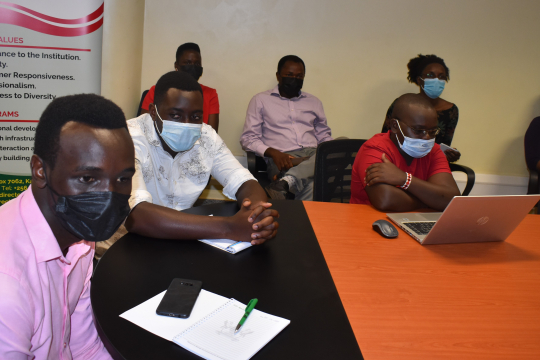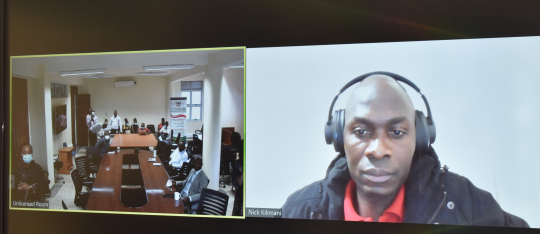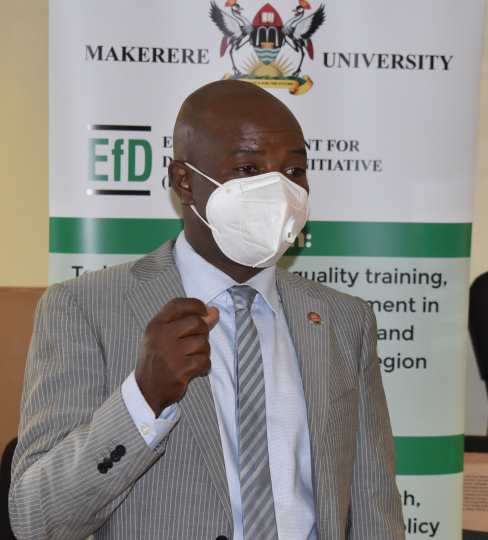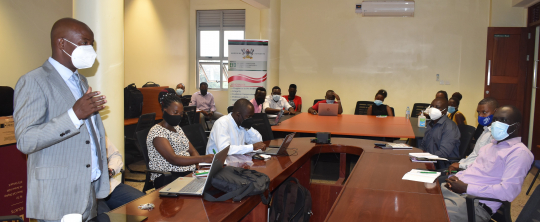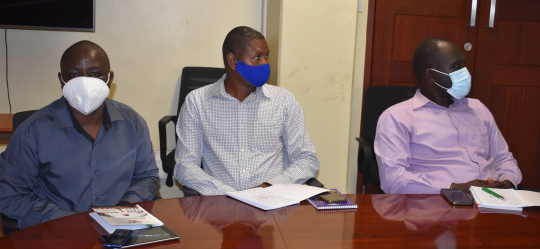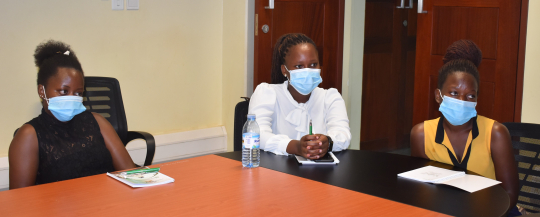Over 30 members of the academia comprising staff and graduate students from Makerere University School of Economics, Muni University, and Makerere University Business School on 28th September 2021 met in a seminar to discuss the System of Environmental-Economic Accounting (SEEA).
The seminar was organized by the Environment for Development Initiative (EfD-Mak) Centre and facilitated by Makerere University's don, who is also a Research Fellow at the EfD-Mak center, Fullbright Scholar Dr. Nicholas Kilimani.
Nicholas Kilimani streamed live from the USA on the System of Environmental-Economic Accounting, focusing on Integrated Water Resources Management, Policy Analysis, and Decision making.
New area of interest to the government of Uganda
The Director of the EfD-Mak Center Prof. Edward Bbaale said the seminar has been exciting because it brought onboard a new area that is of interest to the government of Uganda.
"The Uganda Bureau of Statistics, the National Planning Authority, and other partners are trying to work on the system of Environmental-Economic Accounting away from the conventional system of National Accounting," said Edward Bbaale.
“Our System of National Accounting is deficient in incorporating Environmental aspects because as we produce and consume, we are depleting the environment which we refer to as natural capital. But there is no way in our conventional GDP measurements that we are accounting for this. This new system is a solution to this.”
Nickolas Kilimani showed participants how to undertake the System of Environmental-Economic Accounting and explained the key variables that are important in this system specific to the water sector.
Dr. Kilimani exposed participants to the policy and non-policy variables, the output, and elaborated on how to say, a policy on the construction of a dam can be analyzed to understand the impact on the rest of the economy in terms of the social, economic, and environmental outcome.
Participants were also tipped on some methods such as the Computational General Equilibrium Models which can be utilized to understand each of these issues analytically.
Key lesson: Important for policymaking
The key takeaway for academicians is to understand and utilize the new system in research to influence policy decision-making.
“We need to invest our time to include the System of Environmental-Economic Accounting in our research as economists and academicians. And to our students, this is an area worthy of investing their time in,” Edward Bbaale said.
“It is a starting point of a deeper analysis into how the environment is being affected by our production and consumption activities,” Edward Bbaale said.
He explained that the facilitator made them understand how these analyses are important for policymaking. He pledged to involve policymakers from the Ministry of Water and Environment and the National Water and Sewerage Corporation in the next seminar.
Makerere University Ph.D. student from the school of economics Alex Aliga, who is also a lecturer at Muni University Uganda said the seminar was valuable:
“It has enriched many of the things that I had learned in class. The System of Environment and Economic Analysis though new is very important because once you understand Natural Resource Accounting and integrate it into GDP, you understand the full value of our resources. In that case, it means that we may be richer than we thought we are. Some of these things are not easy to bring to the GDP which is the measure of our national economy.
"Understanding how you can apply the theoretical things in practice and to influence policy is very important for our country given the fact that our resources are under attack, climatic change, and environmental issues are real, then we need this knowledge so as to be able to sustainably use our resources for a better future,” he said.
Dr. Paul Edabu, a Senior Lecturer Muni University said:
“The day’s seminar was an eye-opener to the current situation in Uganda bearing in mind that we have two blocks of people who are in accounts and economics and there is no integration even in our ministries.
Our country is in a paradox. People are restricted from cutting down trees from the forests and carrying out farming in the wetlands. The next day, a factory is erected in the wetland. This seminar is timely and something I had yearned to learn because it incorporates the environment as a key resource into the national accounting system,” Paul Edabu commented.
Written by:
Anyango Jane
Communication Officer, EfD-Mak Center
